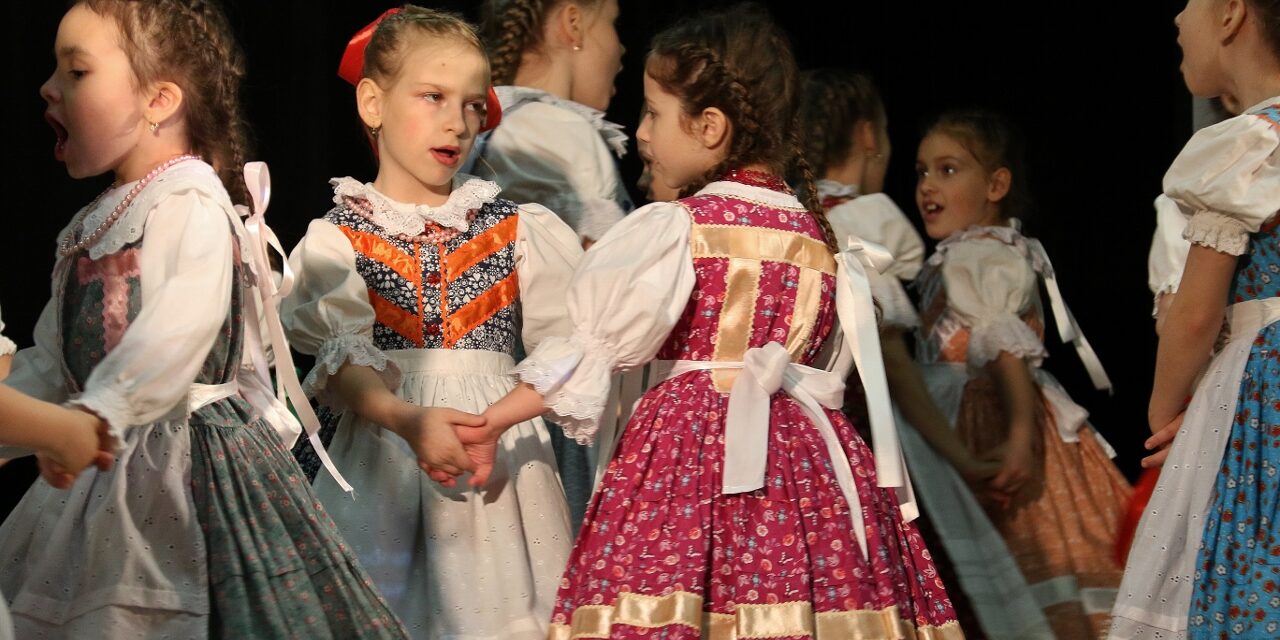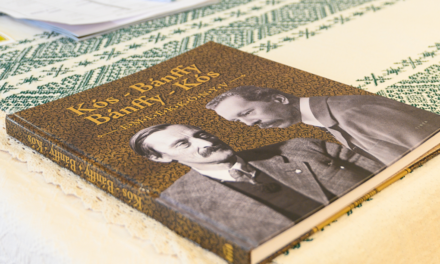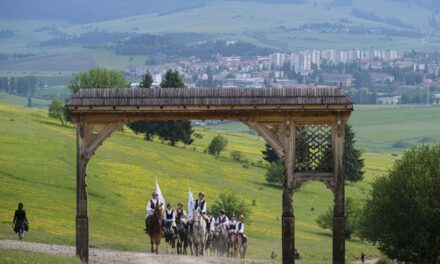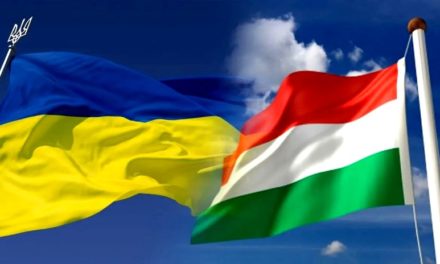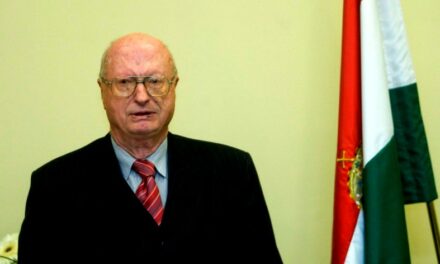The Association of Mother Tongue Nurses organizes the week of the Hungarian language for the fifty-sixth time, the opening event of which was held on April 19 at Somorja in Csallóközi. The main patron of this year's Hungarian Language Week event series is dr. President János Áder. The motto of the event: Our mother tongue is limitless. That is why the opening event of the event series was held in Somorja, in the heart of Csallóköz.
Csali Apró performed in the program, performing rábaköz children's games, then Liliána Katona, Nagy Hanna Napsugár, Bence Kiss, students of the Móra Ferenc Elementary School in Nyékvárkony, and Emma Fischer, a student of the Dunaszerdahely Health Secondary School, recited, they participated in the district round of the Petőfi-Tompa National Army Review were gold-belted, advancing competitors from the Dunaszerdahely district.
The opening event in Somorja was created in cooperation with the Association of Mother Tongue Nurses, organized by the Somorja Basic Organization, National Council, and Youth Section of Csemadok, as well as the Zsigmond Zalaba City Library and the City Cultural Center in Somorja. The Association of Mother Tongue Nurses, in cooperation with Csemad, also holds an event in Ipolyság, Léva, Buzita and Kassa.
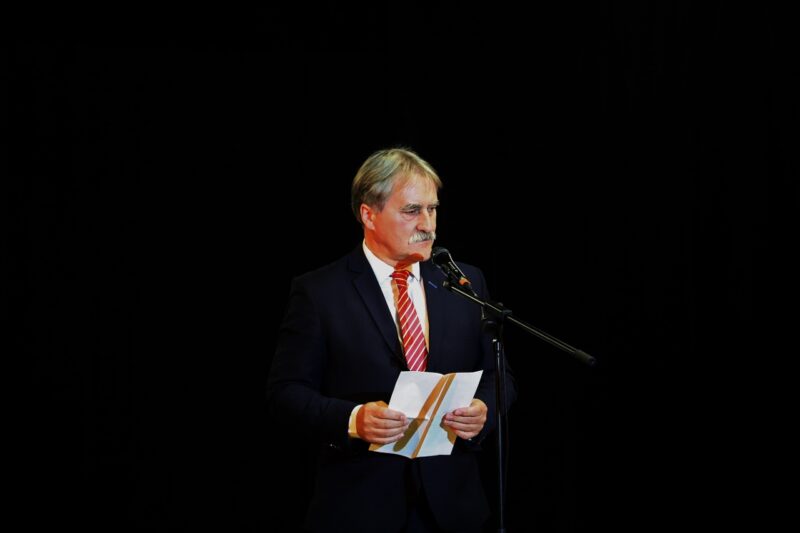
Gyula Bárdos/Source: Felvidek.ma
In his speech, Gyula Bárdos thanked the Society of Mother Tongue Nurses for organizing the event in cooperation with Csemad. The president of Csemadok quoted Sir John Browing, English linguist and writer, as saying about our mother tongue:
"The Hungarian language is rooted in the distant past. It developed in a special way, and its structure dates back to ancient times, when the European languages spoken today did not even exist.
A language that has evolved on its own, consistently and solidly, and in which lies a deep logic, coupled with the adaptability and flexibility of power and sound. (…) This language is the oldest and most glorious monument of national independence and intellectual independence."
Judit Juhász, the president of the Association of Mother Tongue Nurses, said that this event, which is the oldest of its kind, was started 56 years ago, and she thanked László Grétsy, the honorary president of the Association, for starting this work. The organization is also made up of teachers, people who value their mother tongue, who want to speak sophisticatedly, and who consider it important to use our mother tongue beautifully and correctly.
Let's be loyal to our mother tongue!
Péter Pomozi, director of the Hungarian Language History Research Center of the Hungarian Research Institute, associate professor at Eötvös Lóránt University, gave a lecture entitled The Eternal Power of the Mother Tongue in a Changing World.
Péter Pomozi explained that our mother tongue has been affected by many influences in the course of history, Hungary has been attacked several times, which threatened the existence of Hungarians and with it the language we speak, but luckily it survived.
Trianon broke up the Hungarian language area, Hungarianness was divided, and this had serious consequences, which we feel to this day.
Unfortunately, the de-Hungarianization was established in the historic Felvidék, an example of this is the case of Selmecbánya, if we compare the census data, we see that before the First World War forty percent of the population declared themselves Hungarian, and today there are hardly any residents of Hungarian nationality.
The nationality ratio also changed in Csallóköz, but fortunately not to such a large extent.
Slovaks must also be made aware that we have been living together for centuries and have a common history. The mother tongue is limitless, but it is also of outstanding importance from the point of view of the cohesive force of the community.
After the event, Judit Juhász told our question: it is planned that in addition to the locations in the motherland, the event will also have locations in the highlands next year, as they consider it important to cooperate with those across the border, Csemadok can provide a good basis for this, as it has a base organization in almost every Hungarian settlement, with which can work.
Source and full article: Neszméri Tünde/Felvidék.ma)
Featured image: Felvidek.ma/Görföl Jenő

